Cats have long been popular for their impressive hunting skills and ability to see in the dark. Their nocturnal nature and mysterious behaviour have captivated humans for centuries, leading many to wonder about their feline night vision.
With their keen senses and remarkable eyesight, it’s no surprise that cats can see in low-light conditions. However, the extent of their night vision capabilities is still a topic of discussion among experts.
We’ll dive deeper into the topic are cats okay in the dark and explore the science behind it. We’ll take a closer look at how cats’ eyes work. What makes them so adept at seeing in the dark, and whether they have superior night vision to other animals? Whether you’re a curious cat owner or simply fascinated by these creatures. Join us as we uncover the truth about cats and their ability to navigate in the dark.
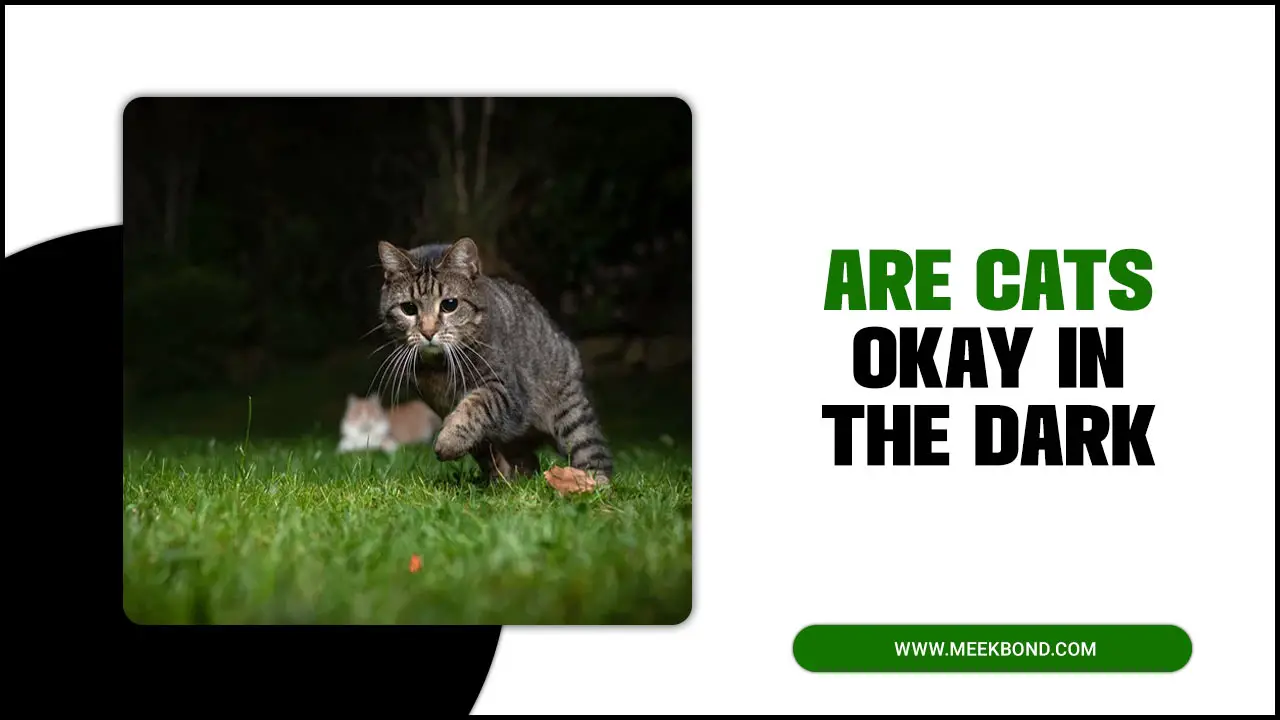
Are Cats Okay In The Dark? Detailed Answer
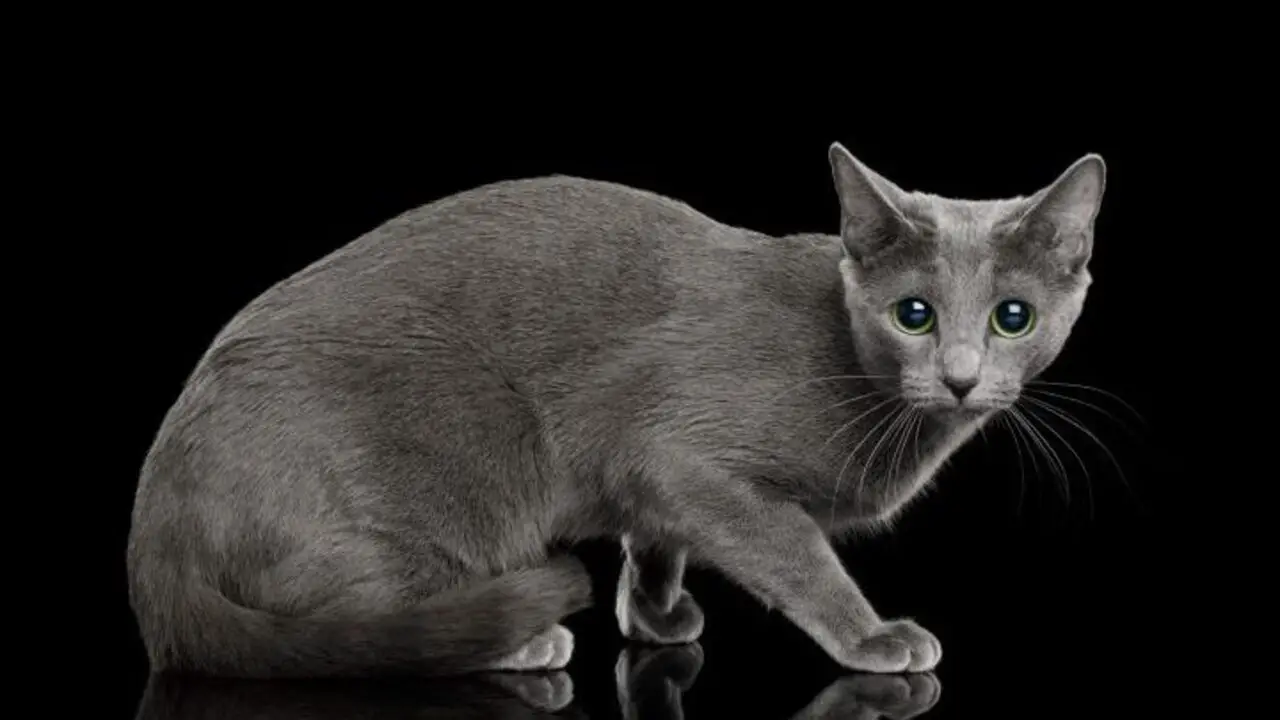
Cats are popular for their exceptional night vision, which makes them very comfortable in the dark. They have evolved to see well in low-light conditions, allowing them to hunt effectively at night. Although cats are okay in the dark, ensuring they have enough light to move around safely is still important.
It’s recommended to provide them with a dim light source. Such as a nightlight to help them navigate the house at night. This is especially important if your cat is older or has vision problems that may affect its ability to see well in the dark.
Additionally, it is important to ensure no hazards in the areas where your cat may wander around in the dark. This can include sharp objects, unstable furniture, or any other potential dangers your cat may accidentally bump into. Cats are generally Are cats okay in the dark, but it is still important to take precautions to ensure that they can navigate safely and avoid any potential hazards.
Physiology Of A Cat’s Eyes
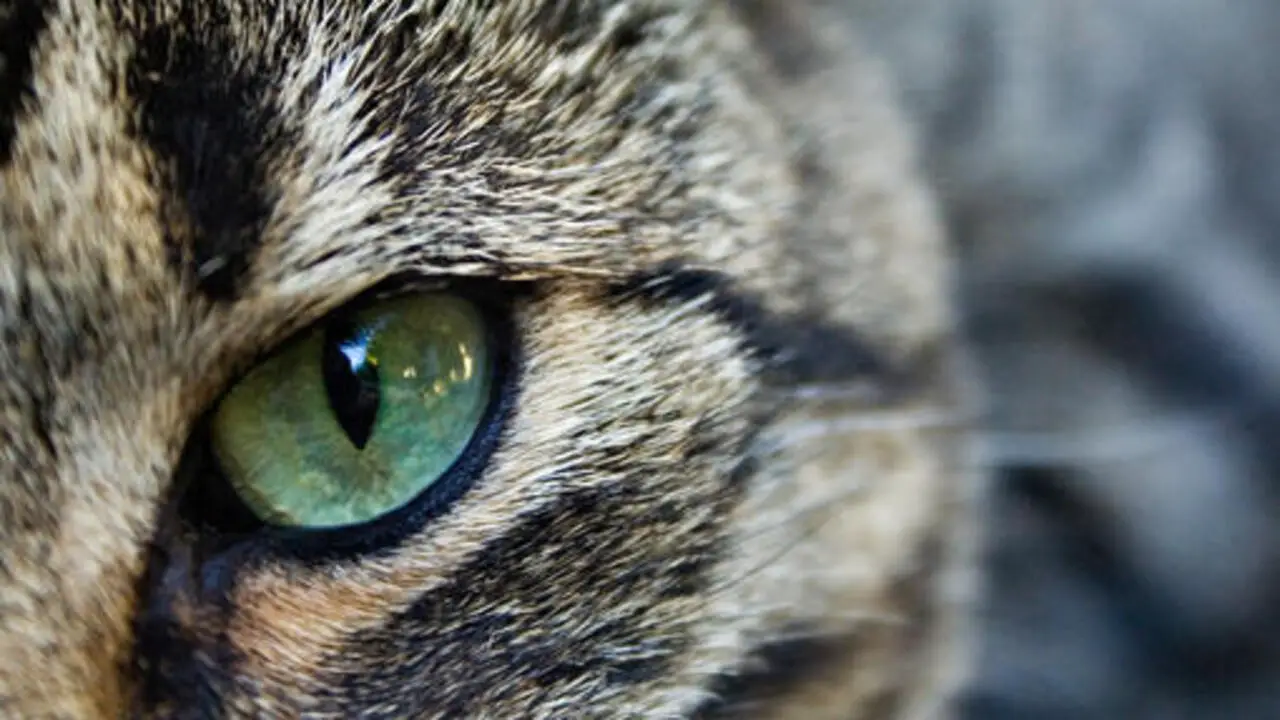
Cats have excellent night vision, which is due to the unique physiology of their eyes. They have larger pupils than humans, which allows more light to enter the eye, and a higher density of rods, cells in the retina responsible for night vision. Additionally, cats have a reflective layer called the tapetum lucidum behind the retina that helps amplify the available light, giving them enhanced night vision.
Because of these adaptations, cats are perfectly fine in the dark and can easily navigate their surroundings. In fact, they are often more active and playful at night. This is why many cat owners provide toys and other forms of entertainment for their feline companions during this time.
Nighttime Behavior Of Cats
Cats are crepuscular animals, which means they are most active during the twilight hours of dawn and dusk. However, people admire their nocturnal activity as their eyes perfectly adapt to low-light conditions. This means that cats are perfectly okay in the dark and can easily navigate their surroundings.
In fact, cats have an exceptional sense of hearing, smell, and touch. Which allows them to find their way around even in complete darkness. However, providing a safe and secure environment for your cat if they are active at night is important, as they could get into trouble or harm themselves if left unsupervised.
Night Vision Is Unique
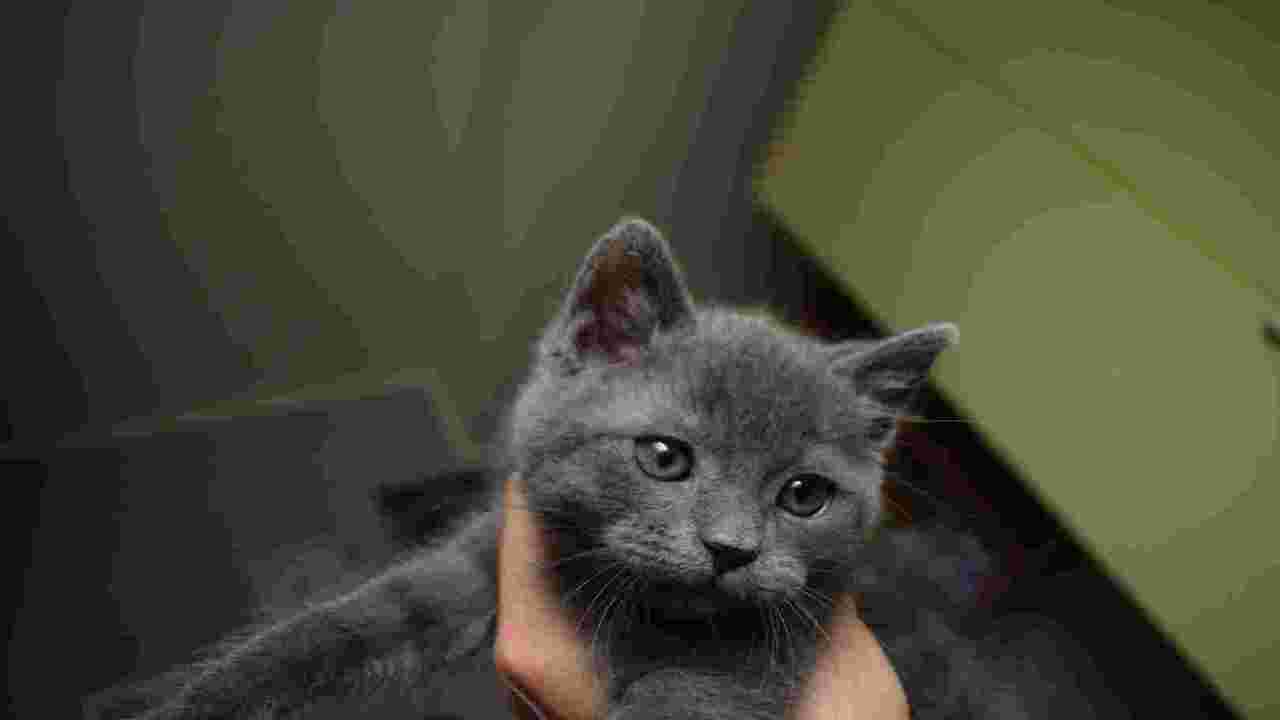
Cats are crepuscular animals, which means they are most active during the twilight hours of dawn and dusk. Their eyes are adapted to low light conditions, giving them superior night vision compared to humans. Cats have a reflective layer called the tapetum lucidum behind their retina that reflects any available light through the retina, enhancing their vision in the dark.
Moreover, their pupils can dilate widely to let in more light, which helps them see better in low-light conditions. Therefore, cats are perfectly okay in the dark and can navigate their way around easily. However, providing some dim lighting at night is always a good idea to avoid any accidents or mishaps.
Eyes Adjust To Low Light.
Cats have large pupils that can open wide to let in more light, and they have a reflective layer behind their retina called the tapetum lucidum that helps them see in the dark. This adaptation allows them to see much better than humans in low-light conditions. However, it’s important to note that cats can still run into objects or misjudge distances, especially in an unfamiliar environment.
In addition, complete darkness can be disorienting for cats and cause them to feel anxious or scared. It’s a good idea to provide them with a small night light or leave a small lamp on to help them navigate their surroundings. Overall, cats can see and function reasonably well in the dark, but it’s important to
Darkness Won’t Harm Cats
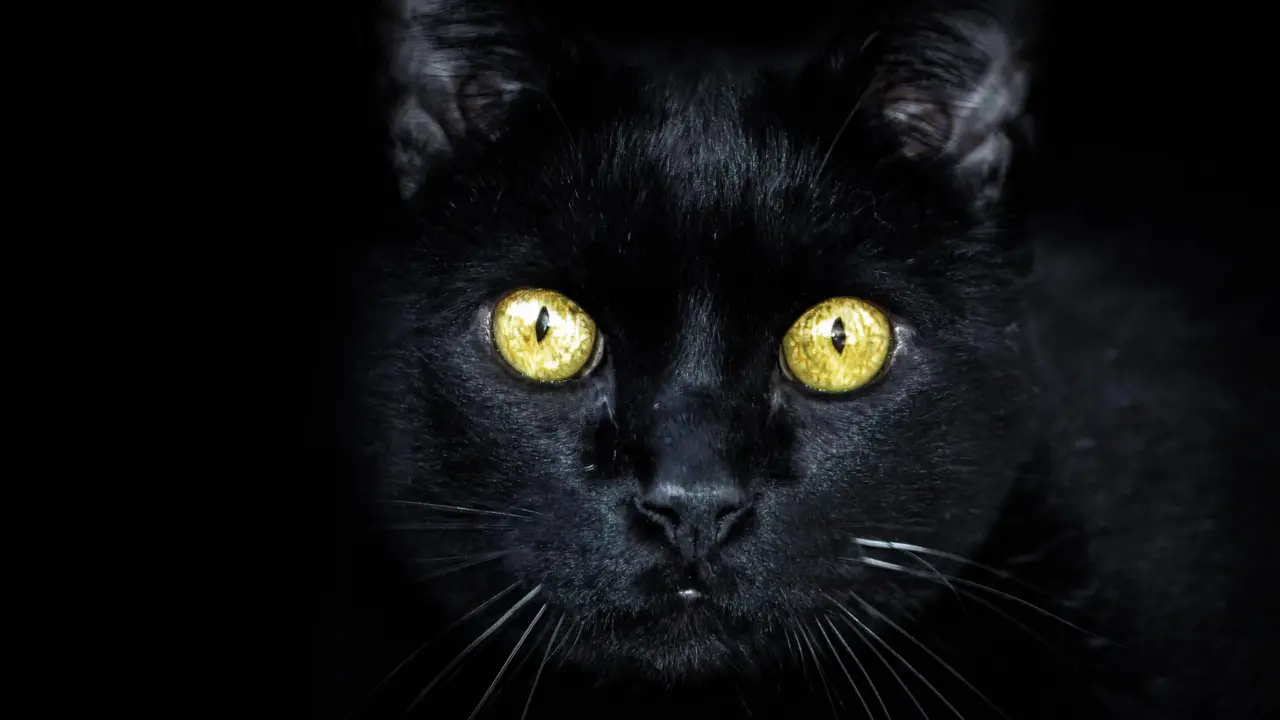
In fact, cats have excellent night vision and are designed to see in low-light conditions. Their eyes have a tapetum lucidum structure, which reflects light back through the retina and enhances their ability to see in the dark. This evolutionary adaptation has made cats successful hunters in the wild, as they can effectively navigate their surroundings and spot prey even in the absence of light.
However, it’s important to note that cats may become disoriented or anxious in unfamiliar surroundings. Especially if they are kept in complete darkness for extended periods of time. As pet owners, we should ensure that our feline friends have access to ambient light and a comfortable environment to alleviate any stress or discomfort they may experience in the dark.
How Do Cats See In The Dark?
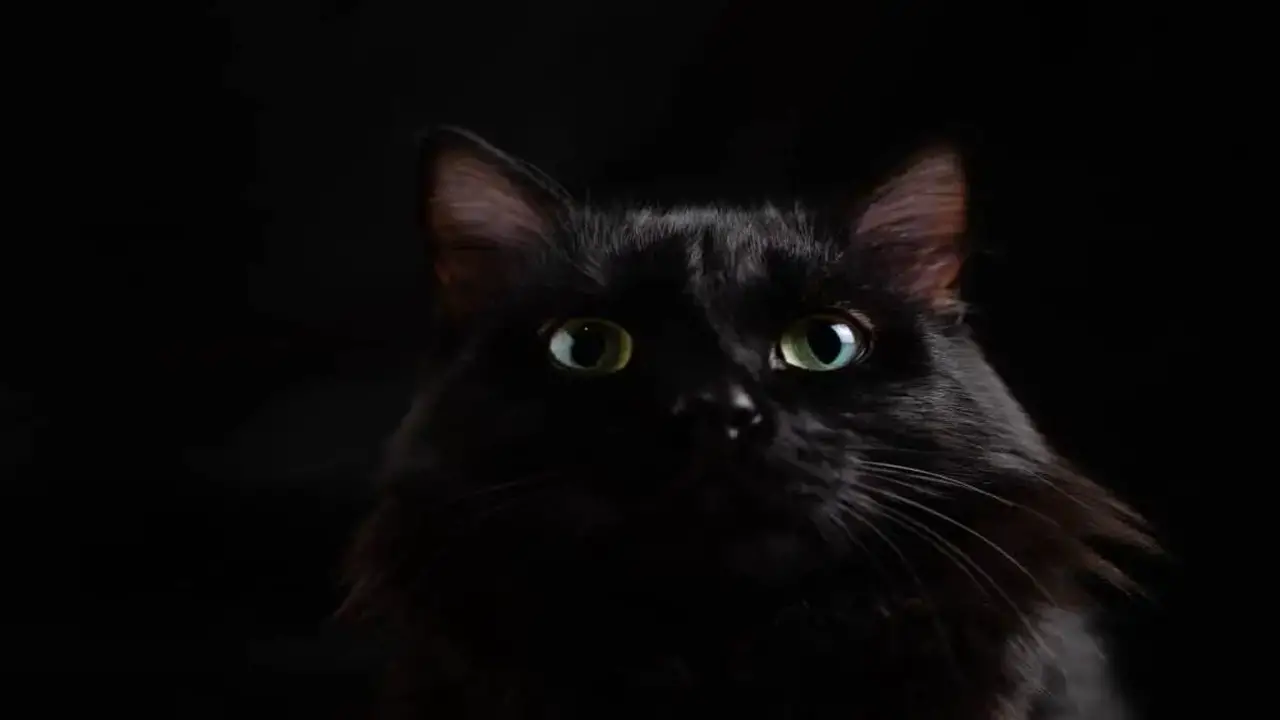
Cats are popular for their exceptional vision, especially in low-light conditions. Their eyes have a unique structure that allows them to see in the dark. Cats have more rods than cones in their eyes, which means they are better at detecting movement and seeing in low-light conditions.
The pupils in their eyes also widen in the dark to allow more light to enter, further enhancing their ability to see in low-light conditions. Additionally, cats have a reflective layer in the retina called the tapetum lucidum. Which reflects light through the eye and increases their sensitivity to light. Overall, cats have adapted to see in the dark to hunt and navigate their environment.
Can Cats See In Total Darkness?
Cats have a unique ability to see in low light conditions due to their specialized eyes. Their eyes contain more rods than cones, which means they can see better in low light. However, cats cannot see in total darkness, as they still need some light to see.
They also have a reflective layer in their eyes called the tapetum lucidum, which helps them to see better in low light conditions by reflecting light through the retina. Therefore, it is safe to say that cats are okay in the dark as long as some light source is available. It’s important to remember that cats also have sharp senses of hearing and smell, which they can use to navigate in the dark.
How Can You Tell If Your Cat Is Afraid Of The Dark?
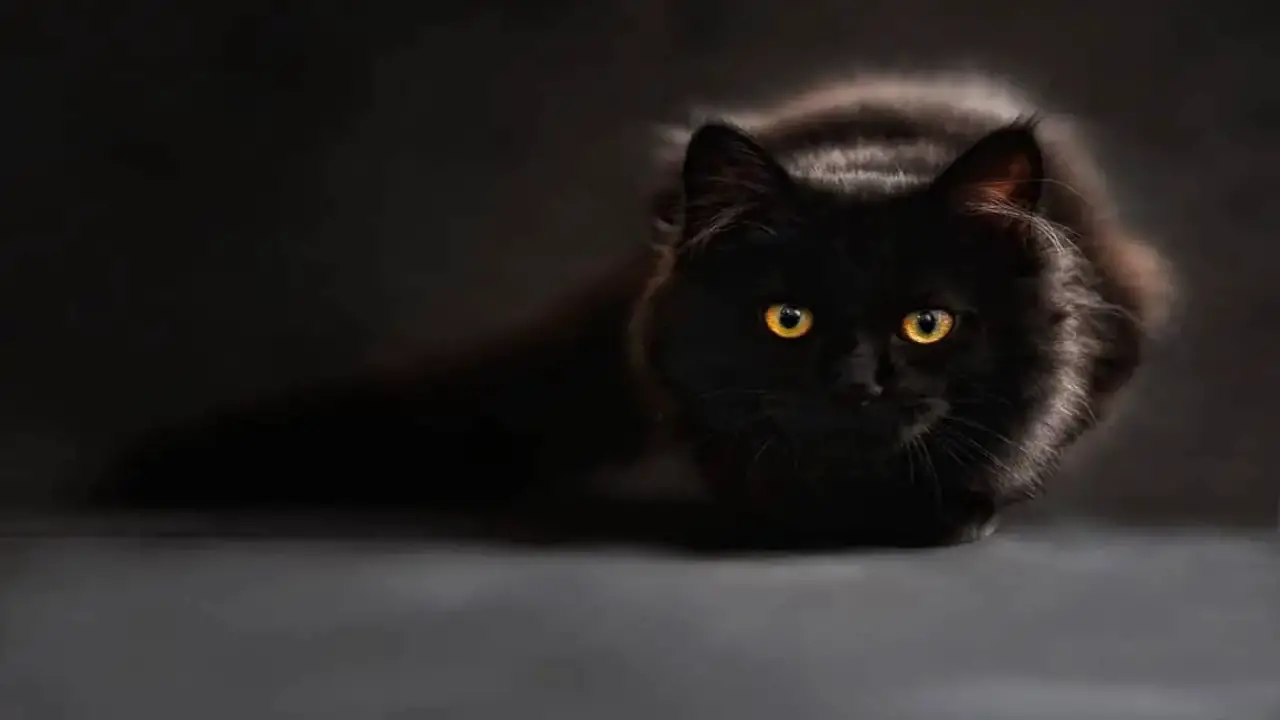
While cats generally have good night vision, some may feel uneasy in the dark. You may notice signs of fear or anxiety, such as hiding, pacing, or excessive meowing. Your cat may also want to stay close to you instead of wandering around the house.
If you suspect your cat is afraid of the dark, you can try providing a night light or leaving a small lamp to ease their worries. It is also important to ensure your cat can access their favourite hiding spots or cosy beds to help them feel safe and secure. If your cat’s fear of the dark persists, consulting with a veterinarian or a behaviourist may be helpful to address any underlying issues.
How Cats Adapt To Low-Light Environments
Cats are known for their exceptional eyesight, which allows them to see in low-light environments. This ability is due to several adaptations in their eyes, including larger pupils that allow more light to enter, a reflective layer behind the retina called the tapetum lucidum that reflects light through the retina, and a higher number of light-sensitive cells called rods.
Additionally, cats can dilate and constrict their pupils rapidly, giving them excellent control over the amount of light entering their eyes. These adaptations enable cats to hunt and navigate effectively in low-light conditions, making them highly successful nocturnal predators.
Is It OK To Leave Kittens In The Dark?
It is not recommended to leave kittens in the dark for extended periods of time. Kittens, like any other animal, require proper care and attention to thrive. Leaving them in the dark can cause them to become disoriented and anxious, which can lead to behavioural issues and even health problems. It is important to provide kittens with a safe, well-lit environment that allows them to explore and play.
Adequate lighting also helps to regulate their circadian rhythms and promote healthy sleep habits. In addition, kittens require socialization and interaction with their owners to develop properly. It is crucial to prioritize their well-being and ensure they receive the necessary care and attention to grow into healthy adult cats.
Tips For Making Your Home Safe And Comfortable For Your Cat At Night
As a responsible pet owner, it is important to ensure that your cat feels safe and comfortable at night. Firstly, ensure your cat has a cosy bed or sleeping area away from potential dangers or disturbances. Keep all hazardous materials, such as cleaning products and electrical cords, out of reach. Install nightlights or dim lights around your home to prevent your cat from getting disoriented in the dark.
Additionally, provide your cat with plenty of toys and scratching posts to keep them entertained throughout the night. Lastly, ensure that all windows and doors are securely locked to prevent unwanted intruders from entering your home. By implementing these tips, you can help your cat feel safe and comfortable at night.
The Benefits Of Allowing Your Cat To Be Active At Night
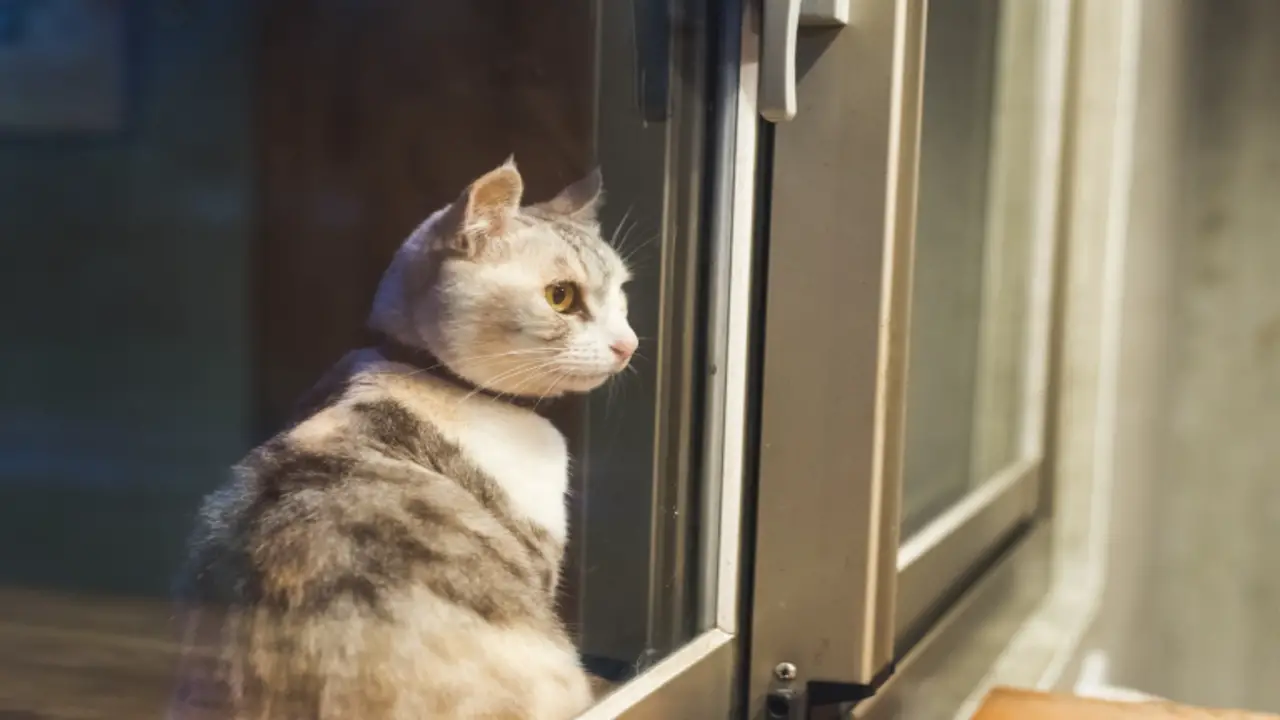
Allowing your cat to be active at night can benefit you and your feline companion. Cats are naturally nocturnal creatures, and it is in their instinct to be active during the night. Providing them with an outlet for this energy can improve their physical health, reducing the risk of obesity and medical conditions.
Moreover, giving them toys and interactive games appropriate for their night-time activity can also help prevent behavioural issues such as destruction and aggression. In addition, it can enhance your bond with your cat by providing opportunities for play and interaction during times when you may be at home and awake. Ultimately, embracing your cat’s natural instincts for nighttime activity can positively benefit you and your beloved pet.
Conclusion
Cats adapt well to low-light conditions and can see in almost complete darkness. Their eyes contain specialized cells called rods that enable them to see in dim light, and their pupils are much larger than those of humans, allowing more light to enter their eyes.
Despite this, it is still important to provide adequate lighting for Are cats okay in the dark as they may still run into objects or become disoriented. So, let your feline friends embrace their inner nocturnal creatures and enjoy their whisker-filled adventures in the dark
FAQs
Can Cats See In Complete Darkness, Or Do They Need Light To Navigate?
While cats cannot see in complete darkness, they have excellent night vision due to a specialized layer of cells in their eyes called the tapetum lucidum. This layer reflects light through the retina, allowing cats to see in low-light conditions. However, they still need some amount of light to navigate effectively.
Is It Safe For Cats To Be Left Alone In The Dark For Extended Periods Of Time?
No, it is unsafe for cats to be left alone in the dark for extended periods, as they may become disoriented, anxious, or scared. Additionally, cats have limited night vision and may have difficulty navigating in complete darkness, which could lead to accidents or injuries. Providing some form of ambient light or leaving a small nightlight on for cats if they are left alone in the dark is recommended.
Do Cats Naturally Fear The Dark, Or Are They Indifferent To It?
Cats are generally not afraid of the dark as they have excellent night vision and can navigate in low-light conditions. However, like other animals or humans, they can be startled by sudden noises or unfamiliar surroundings in the dark.
.Are There Any Health Risks Associated With Cats In The Dark, Such As Eye Strain Or Anxiety?
Cats have excellent night vision, so being in the dark does not cause eye strain. However, some cats may experience anxiety or stress if they are in complete darkness for extended periods of time. Providing dim or night light is recommended to help ease their anxiety. Additionally, cats may be more prone to accidents or injuries in a completely dark environment.
Do Cats Need The Light On At Night?
No, cats do not necessarily need the light on at night. Cats have excellent night vision and are naturally more active during nighttime hours. They are able to navigate and see in low-light conditions without the need for artificial lighting. However, some cats may prefer having a dim light on for comfort or to help them find their way around.

Aquarium passion is all about connecting with the aquatic life and providing education to the public on the importance of these creatures. We showcase a wide variety of marine life through our exhibits as well as working with schools to provide unique learning opportunities for students of all ages.









